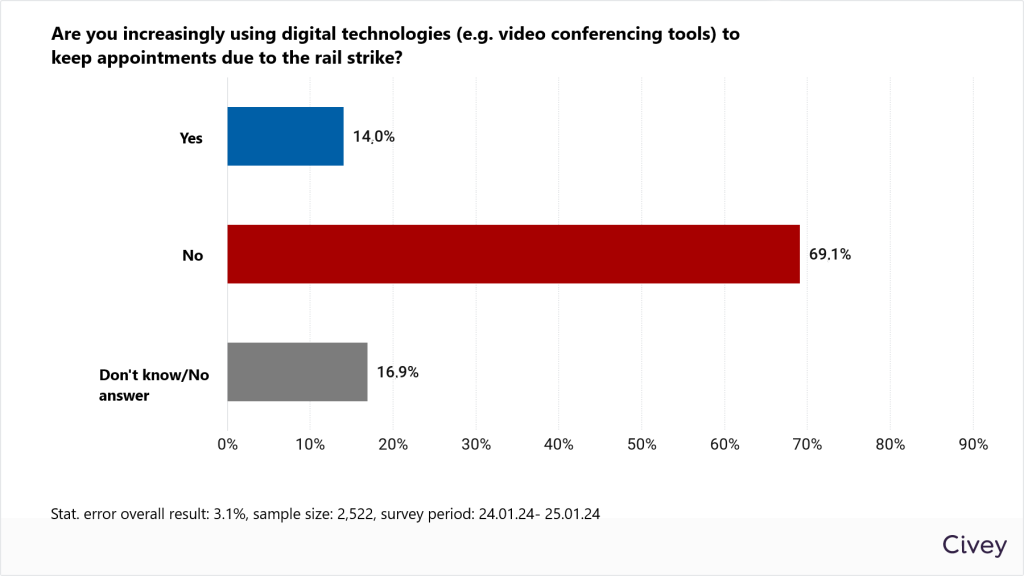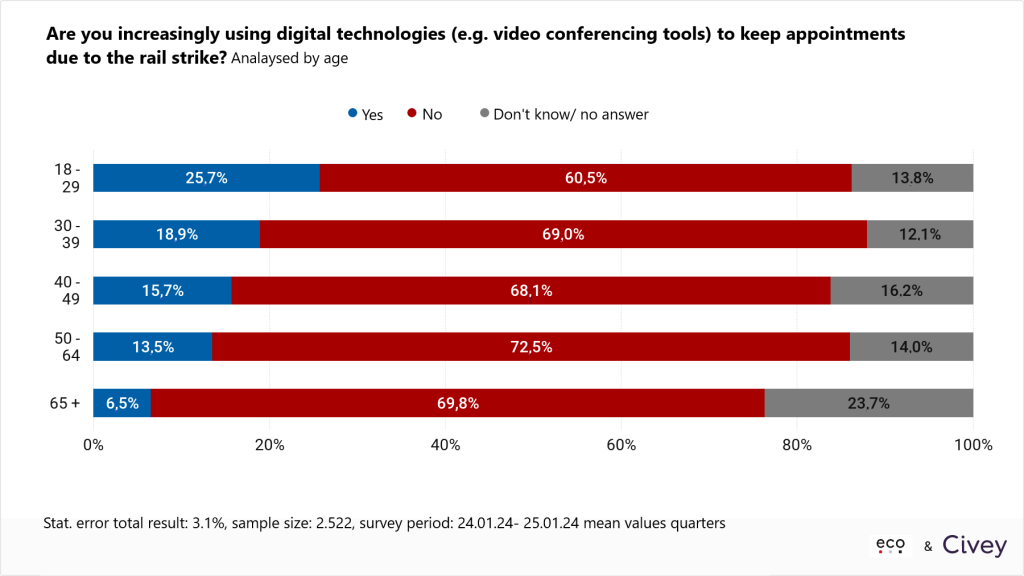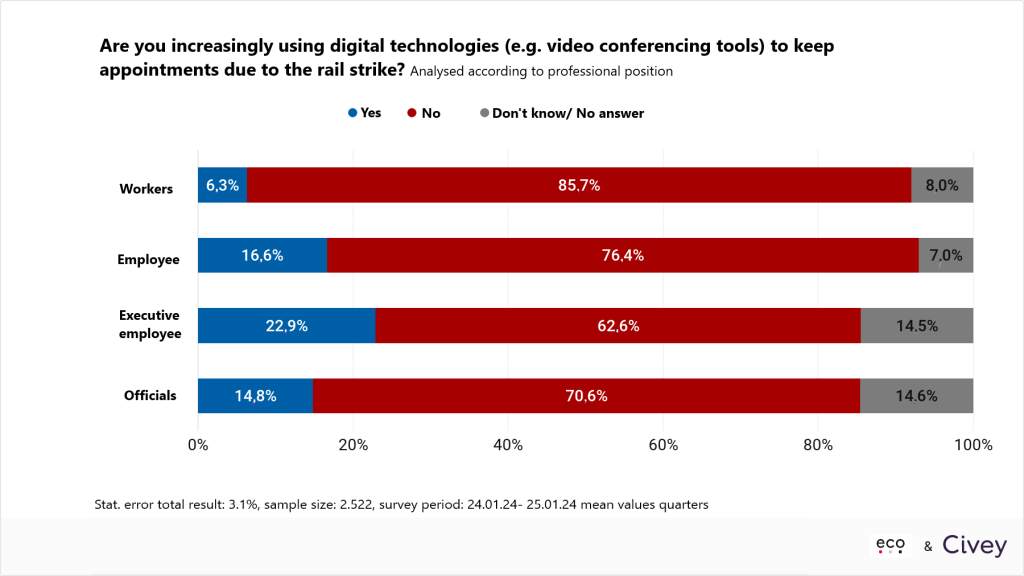Millions of Germans are currently unable to get to to their usual workplaces or attend scheduled appointments due to the railway strike. A recent eco survey has shown that the use of digital technologies and applications such as video conferencing is once again the method of choice to compensate for this situation.
Particularly among younger Germans (18-29 year olds), around one in four (25.7 %) are now increasingly relying on video conferencing and other digital tools to enable them to work during the railway strikeor to ensure that planned appointments take place. Additionally, 22.9 per cent of managers in companies are currently replacing planned trips with digital collaboration methods. Overall, 14% of all respondents over 18 years old stated in the recent survey that they are using digital technologies like video conferencing tools more frequently due to the railway strike, enabling them to work from home, for example. On behalf of the eco – Association of the Internet Industry, the market and opinion research institute Civey conducted a representative survey of 2,522 Germans to find out whether they were using video conferencing and other digital tools during the current railway strike.
“In the peak times of the Covid-19 pandemic, many people had to work from home and were only able to carry out their activities, hold meetings or talk to friends and relatives thanks to digital technologies and applications. To mitigate the consequences of the railway strike, we are once again seeing the increased use of these digital services to enable people to be productive when working from home,” says eco’s Managing Director Alexander Rabe.
“This clearly demonstrates that digital infrastructures are becoming increasingly important for a functioning economy and our societal needs. Strengthening a functioning ecosystem of digital infrastructures and services should therefore be a top priority for a forward-looking location policy at the German federal and state levels. This includes the rapid expansion of gigabit infrastructures and 5G networks as well as the creation of competitive location conditions for data centres in Germany,” adds Rabe.
*The opinion research company Civey surveyed around 2,522 adult German citizens between 24 and 25 January 2024 on behalf of eco. The results are representative. The statistical error of the overall results is 3.1 per cent.






